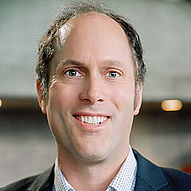Bernd Ludwig studied computer science at the Friedrich Alexander University in Erlangen-Nuremberg. For his doctorate, he developed a plan-based dialog manager. The habilitation thesis is entitled “Plan-based human-machine interaction in multimodal assistance systems”.
From September 1997 to April 2004 Bernd Ludwig was a research associate in the knowledge processing research group at the Bavarian Research Center for Knowledge Based Systems in Erlangen; from May 2004 to April 2010 research assistant at the Chair for Artificial Intelligence at the Friedrich Alexander University Erlangen Nuremberg. Bernd Ludwig was a 2010 BIT guest professor and postdoc researcher at the Faculty of Computer Science at the Free University of Bozen-Bolzano and the Department of Information Engineering and Computer Science at the Universitá degli Studi di Trento, and from November 2010 to March 2011 he was a private lecturer at the Chair for Artificial Intelligence in Erlangen. In the Summer semester, Bernd Ludwig represented the professorship for information linguistics at the University of Regensburg, and has held his professorship permanently since August 2011.
The main areas of research are the relationship between language and action in rational human-machine interactions and algorithms for its efficient implementations. Another focus is on the implementation of assistance functions for users who use mobile devices as supporting tools for solving complex tasks.
Bernd Ludwig is a reviewer and organizer of various international conferences and coeditor of the magazine Artificial Intelligence.

Information Science
I work at the chair for information science and hold the professorship for information linguistics.
The most important topics are methods of computational linguistics, language-based assistance systems and the basics of artificial intelligence and machine learning.
AI methods are the key to solving all topics in teaching, but also research. Without them we couldn’t do anything, i.e. develop no programs at all that can interact linguistically, determine problem solving itself depending on the situation, or analyze complex sensor data
As a team, we explain the math in the lecture by introducing and explaining concepts. In an exercise, we try everything out practically by using Jupyter notebooks. We learned that from the AG Spang. We also use their implementation, how students can log in and use their private workspace. In our courses, many students have less previous knowledge of the relevant areas of mathematics tha, for example, in a computer science course, especially because they don’t hear special math lectures. So we strive to start school math and have to appeal to intuition because we can’t refer to advanced math textbooks. We hope that we can always make the special idea clear – maybe even computer science stdents would find it instructive…
In addition to the theoretical basics, students should founded with software tools (and not only by copying command lines from online tutorials) can apply methods of artificial intelligence and machine learning to their own problems.
As stated above, without the skills, students cannot understand what we do in research, and they can slo ask similar questions in other professional contexts, e.g. in industry, do not edit adequately.
We develop virtual agents for the automated implementation of exposure therappy sessions, chatbots to assist with complex processes (our current application scenario is a digitized kitchen), with the probabilistic position estimation for indoor navigation systems and with knowledge-based advisory system for goal-oriented nutrition and exercise.
We hardly have any topics that are not related to AI. An interesting example is that we are constantly developing new methods to automatically find out what a user is thinking about a current problem solution that one of our systems is assisting him with. In this way, we can show that only by analyzing the looks on the display of a navigation system can we estimate ho easy it is for the person to orientate himself in the area and to take the path that our navigation system suggests.
I studied computer science at the University of Erlangen with a focus on artificial intelligence. Afterwards I was at the Chair for Pattern Recognition (now you would say machine learning) and then at the Chair for Artificial Intelligence and in between I worked for a while in similar working groups at the universities of Bozen and Trento in Italy.
In the past, schoolchildren were laughed at for dealing with questions that theory has proven to be NP-complete problems, i.e. a solution for large tasks or data sets that exceeds the memory and computing time limits of computers. Then whey were laughed at that speech recognition did not work, neither did dialogues systems and certainly not picture recognition. Now that some have been persistent enough and have not been misled, image recognition is considered to be solved, speech recognition is getting better and better, and some chatbots are also making utterances that can hardly be distinguished from human beings – so dealing with these topics is easy and difficult.
I find it exciting to see how tasks such as dialogue can be fomalized in such a way that good algorithmic solutions are understandable and efficient.
Yes, e.g. we are working with psychology on a virtual agent who can perform exposure therapy. The exciting thing is how we can map therapists’ desicions in algorithms.
I think that AI methods and the underlying mathematical methods will find their way into more and more subjects, because this also has epistemological effects on the subjects themselves: analyzing data has often formed the theory. That has an impact on teaching. And the biggest challenge is how we teach AI, or parts of it, without everyone having to do half a math and then half computer science course before they get to their actual course.
With Rainer Spang, I am one of the initiators and represent the university in the Data Literacy Education Network of the Stifterverband.
No.
Mr. Ludwig, thank you for taking the time to answer these questions. We wish you a nice day!